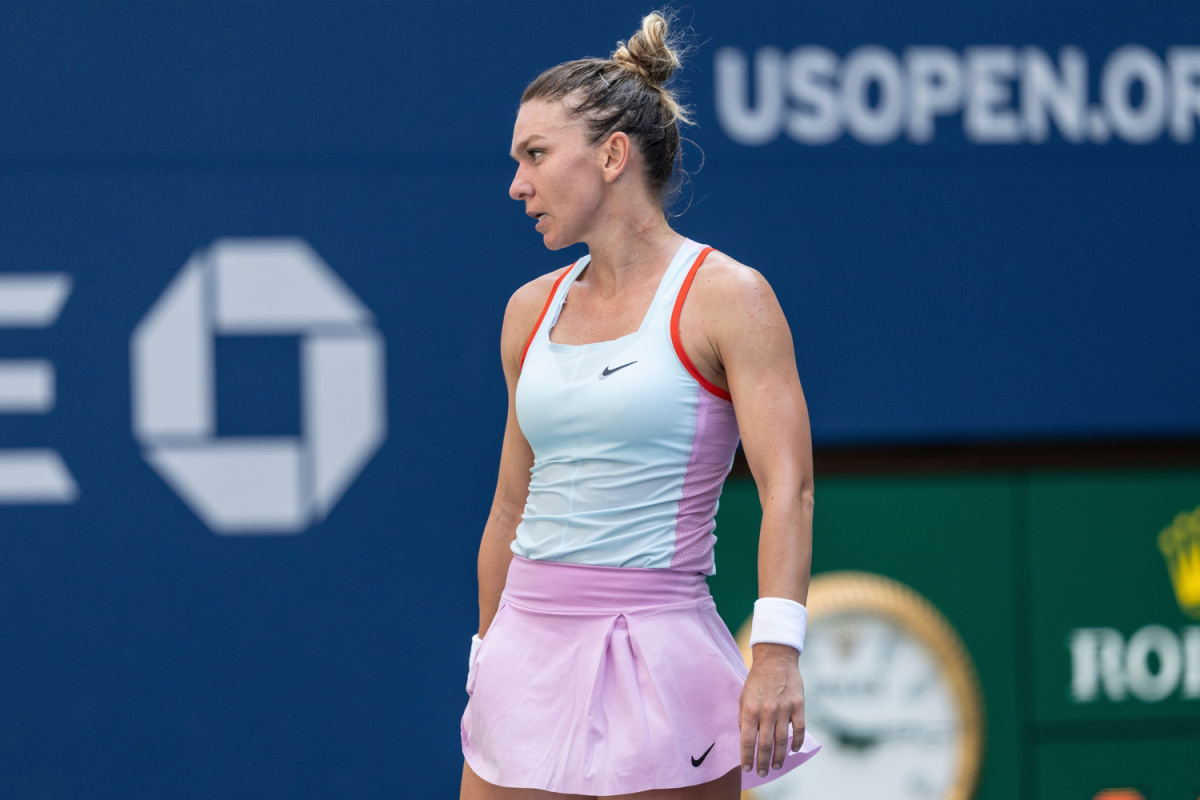Former women’s world number one Simona Halep has been handed a four year ban by the International Tennis Integrity Agency (ITIA) after failing a doping test.
The two-time Grand Slam champion tested positive for the banned substance roxadustat, which accelerates the stimulus of red blood cells, as well as enhances iron metabolism and haemoglobin levels.
The four-year ban is the lengthiest doping ban handed to a tennis player, doubling the sanction handed to Maria Sharapova who was suspended for two years after testing positive for meldonium in 2016.
The ITIA’s investigation began after receiving a positive test from Halep at the 2022 US Open, in which the organisation found irregularities in her blood passport system which ultimately led to her testing positive for roxadustat.
The former Wimbledon and French Open champion expressed her ‘shock’ and ‘disappointment’ upon hearing her suspension and stated she will take the case up with the Court of Arbitration of Sport (CAS).
Halep contested her innocence by stating she did not intentionally use banned substances and was due to a change in nutritional supplements she was taking on the recommendations from her team.
She stated: “Ahead of the hard court season in 2022, upon recommendation from my trusted team and physiotherapist, I adjusted my nutritional supplements. None of the listed ingredients included any prohibited substances, however we now know – and the tribunal agreed – one of them was contaminated with roxadustat. I was tested almost weekly after my initial positive test through early 2023, all of which came back negative.”
“Despite this evidence, the ITIA brought an ABP charge only after its expert group learned my identity, causing two out of three to suddenly change their opinion in favour of ITIA’s allegations. The ITIA relied solely on the opinions of these experts who looked only at my blood parameters – which I’ve maintained for more than 10 years in the same range.
“This group ignored the fact no prohibited substance has ever been found in my blood or urine samples with the sole exception of one 29 August positive test for roxadustat, which was present at an extremely low level and which, when considering my negative test three days prior, could only have been caused by accidental exposure to roxadustat.”
In response to Halep’s statement, the ITIA accepts the argument made by Halep that she may have taken a contaminated supplement, but also argues that the levels of roxadustat was due to “likely doping”.
An ITIA statement read: “The tribunal accepted Halep’s argument that she took a contaminated supplement, but determined the volume ingested could not have resulted in the concentration of roxadustat found.
“The ABP (biological passport) charge was also upheld, the tribunal stating they had no reason to doubt the unanimous ‘strong opinion’ of three independent experts that ‘likely doping’ was the explanation.”
If Halep’s four-year suspension is upheld, the Romanian will not return to tennis courts until 2026 when she will be 35 years old, affecting the prime years of her career.
























